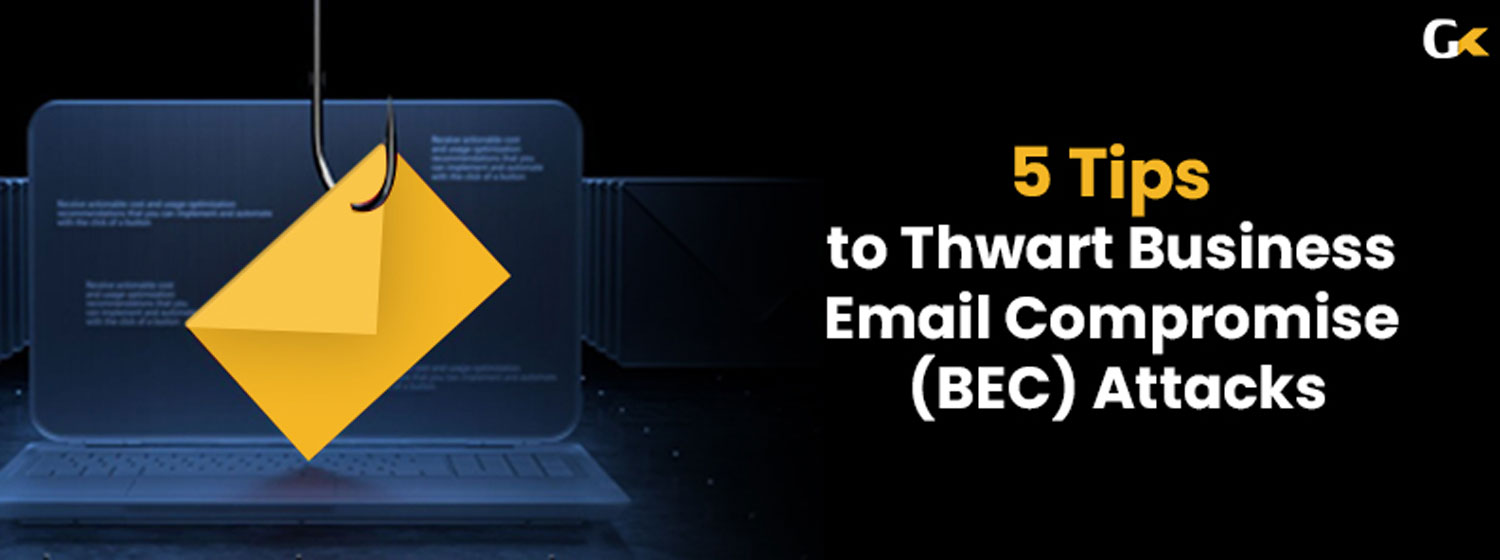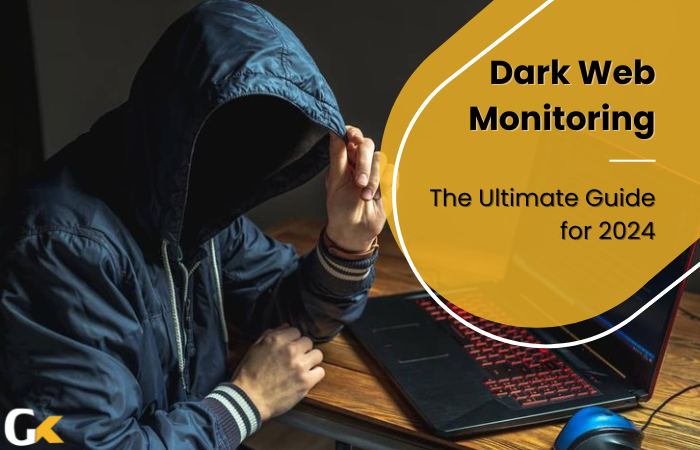| Table of Contents |
|---|
| 1.Key Steps to Reducing BEC Risks |
| 2.An email might alert you to a Data Breach |
| 3.Five Techniques to defend yourself from Business Email Compromise (BEC) |
| 4.Conclusion |
| 5.FAQs |
Cybercrime is a daily threat to organizations and partners of all sizes. With the rapid development of technology and the great reliance on it in some transactions, a new class of serious threats has emerged, posing a high risk to businesses and organizations that rely on financial transactions in their operations. This attack is known as Business Email Compromise (BEC), a type of financial email phishing.
This danger does not need much expertise, experience, or abilities in deceit and fraud; rather, it necessitates a modest level of social engineering. In this study, we add to understanding this danger, how it occurs, how to minimize or limit its occurrence, and how to prevent Email attacks.
Key Steps to Reducing BEC Risks
Ensure the security of your email by teaching your employees to spot malware, especially when an email contains links or attachments.
Utilize spam filtering. Email platforms have recently developed sophisticated screening techniques for identifying unsolicited emails. Spam filters perform a decent job at removing suspicious messages, even though they are not flawless.
Create a safe file-sharing procedure. Despite its risk, email remains the most popular method for transferring files. An encrypted cloud service could be the safest option when exchanging important data with co-workers and other parties.
Make sure your staff members log into your systems with solid, one-of-a-kind passwords. Start utilizing multi-factor authentication and password managers even better.
An email might alert you to a Data Breach
A company needs one carefully crafted email to be opened and read by a weak employee before irreversible harm is done through the cyber-attack in Canada. Business email compromise (BEC) attacks typically pose as a dependable co-worker, partner, or well-known service provider to persuade the recipient to take certain actions, like disclosing private information, paying fictitious invoices, divulging their login credentials on a fake website, or installing malicious software, like ransomware, on the victim’s infrastructure.
Five Techniques to defend yourself from Business Email Compromise (BEC)
Here are some techniques to prevent yourself from various types of E-mail attacks.
1. Verify that URL
Ensure the URL is authentic and related to the company if there is a link in a suspicious email. Sometimes it’s simple to determine whether an email or URL is phony since it may include random words or even gibberish. Avoid clicking the link and attempt to go directly to the website if the URL sounds legitimate, but you aren’t convinced. Before moving further, you might also talk with your IT division or managed service provider.
2. Don’t send delicate information by Email
Even though they could appear to be official correspondence, emails that ask for login details are often fake. Remember that social engineering can disguise fraud efforts by making them seem to be coming from your industry, a co-worker, a partner company, a vendor, or your supervisor. As an email may very well be coming from your partner or a co-worker, email phishing attacks on commercial businesses spoofing might make it challenging to tell what is authentic.
3. Benefits of two-factor authentication
Use two-factor or multi-factor authentication as an extra layer of account change verification. These procedures are unquestionably becoming more common as an additional layer of cybersecurity to counteract rising fraud. Using many levels of protection can help stop even the most targeted assaults, even while no one piece of hardware or software can fight against all threats.
4. Review your bank accounts frequently
Are you not keeping an eye on your accounts? It would be wise to do so. To guarantee that nothing fraudulent is occurring, look for abnormalities, such as missing deposits. When you see anything strange, take prompt action to investigate it. Avoid delaying something like this.
5. Be mindful!
A lot can be done to safeguard your company against fraud by being aware of potential assaults like corporate email compromise and other strategies and dangers, including ransomware, phishing, malware, email spoofing, and more. Make sure you and your team are knowledgeable about the most recent assault kinds. Additionally, always pause before clicking.
Conclusion
In particular, email attacks and BEC assaults have grown, developed, and increased in recent years. BEC is one of the most hazardous email threats to companies and individuals, resulting in significant financial losses. Because of the heavy reliance on technology at work, this threat or danger is expected to grow and spread in the future, so organizations must fully prepare to confront and prevent it by educating employees about the threat, training them on an ongoing basis, and offering assistance software to identify and prevent its occurrence.
FAQs
Industry Experiences
Innovative services for your business
We’re dedicated to making your businesses reliable, efficient, and safe.
We’re a one-stop solution for everything IT you need. Whatever you need, we got you covered:
The most basic and one of the smartest decisions to take to avoid an email compromise attack is to use passwords that include both letters, digits, upper & lower-case letters must be used and also characters.
Never use passwords that are easily guessed, such as Password1, qwerty or Letmein. Have strong security from third-party to avoid these attacks. Contact us for expert advice on robust email security measures.
Business email compromise (BEC) is a sort of phishing assault, specifically a spear phishing attack, to dupe workers to give money to the attacker or compromise important business data that can be compromised. Give us a call for personalized strategies to fortify your email defenses.
The attackers might use the websites to send phishing emails that contain links stating installed malware on the victim’s computer. As soon as you click on the link your email can be hacked.
Please beware and never install anything from your company mail. Don’t let your email be a target! Strengthen security with GoGeekz.
Company emails contain all the communication of the company internally and their clients as well. These emails when compromised can leak serious data or company secrets which will bring loss to the company as well as their clients.
The clients would also be losing trust in the company. Contact us for third-party solutions and expert guidance. Your email’s safety is our priority.




